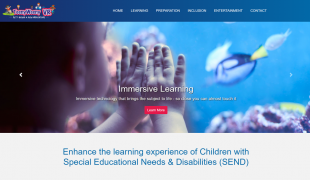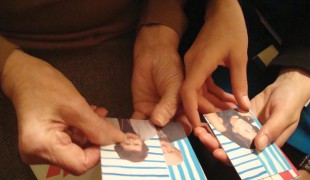- 7052
- 505
- 9
- 6
- 0
- Help Ukraine
About the solution
Kylah was driven to create this solution when, after a study abroad trip in Costa Rica, she had some difficulties passing through the U.S. customs due to her disability.
"So when I was coming through the Atlanta International Airport, they asked me what country where I was coming from. And I stuttered on Costa Rica. Because it’s always been a hard thing for me to say."
After that, she was ushered into another room and was asked questions. Even after she explained her condition, the customs staff kept asking questions and didn’t allow her to go. As she was getting nervous, the stuttering was getting worse.
"My heart was racing," she explains. "I was really confused because they didn’t tell me what was happening. I couldn’t think straight. I felt like I was trapped because no matter how much I told them that I had a speech impediment, it just felt like he didn’t want to believe me”, the student observed.
This caused her to miss her flight. She was mad about it and also because the authorities accused her of lying about a disability like her stutter.
So Kylah decided she had to do something about it.
With the help of Jane Fraser, the president of the Stuttering Foundation of America, she started working on a project that would help stutters avoid these situations.
The card explains up front: “I am a person who stutters. Here is what stuttering is.
The I Stutter Card is available for free and anyone can print it and put it in their wallet.
Adapted from: https://bit.ly/2ud4RTS
More info: https://bit.ly/2Y0WN6A
This solution shall not include mention to the use of drugs, chemicals or biologicals (including food); invasive devices; offensive, commercial or inherently dangerous content. This solution was not medically validated. Proceed with caution! If you have any doubts, please consult with a health professional.
DISCLAIMER: This story was written by someone who is not the author of the solution, therefore please be advised that, although it was written with the utmost respect for the innovation and the innovator, there can be some incorrect statements. If you find any errors please contact the patient Innovation team via info@patient-innovation.com
-
-
416
-
0
-
4758

Teeny Weeny VR- a new way of terapy for autistic children.
CAREGIVING
COMMUNICATION: Communicating, whether by speaking, listening, or other means
Autism
AI algorithm
Anxiety
Difficulty concentrating or making decisions
Social withdrawal or isolation
Promoting self-management
Managing Neurological Disorders
Building Supportive Community Relationships
Promoting inclusivity and social integration
Improving Speech and Communication
To improve Treatment/Therapy
Preventing (Vaccination, Protection, Falls, Research/Mapping)
Raise awareness
Caregiving Support
Child and Adolescent Psychiatry
General and Family Medicine
Neurology
Pediatrics
Psychiatry
United Kingdom
-
-
-
741
-
0
-
11753

Communication design to help with Alzheimer’s
CAREGIVING
Social interaction
COMMUNICATION: Communicating, whether by speaking, listening, or other means
Alzheimer's Disease
Book/Comic
Educational/Leisure device (book, toy, game...)
Memory loss
Confusion
Sleep disturbances
Depression or anxiety
Managing Neurological Disorders
Promoting inclusivity and social integration
Enhancing Mental Health
Improving Speech and Communication
Caregiving Support
Neurology
Psychiatry
Portugal
-
-
-
621
-
0
-
8816

Music to help autistic children
COMMUNICATION: Communicating, whether by speaking, listening, or other means
CAREGIVING
Listening to music
Autism
Podcast
Educational/Leisure device (book, toy, game...)
Social Media
Difficulties with speech
Difficulties learning how to talk
Promoting self-management
Managing Neurological Disorders
Promoting inclusivity and social integration
Improving Speech and Communication
To improve Treatment/Therapy
Raise awareness
Caregiving Support
Child and Adolescent Psychiatry
Neurology
Pediatrics
Psychiatry
United States
-
 en
en